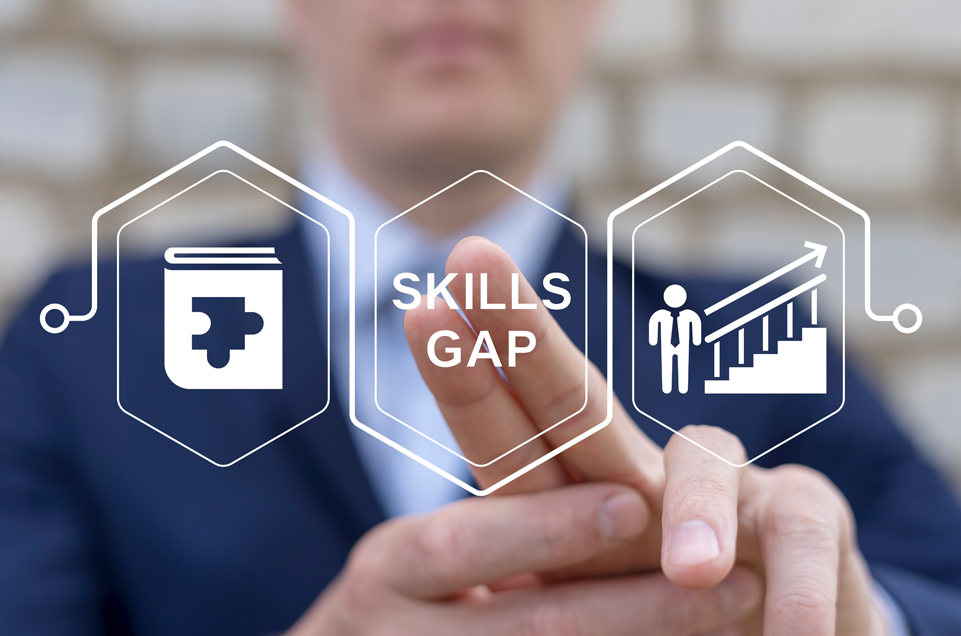Las expectativas en el lugar de trabajo ya no son las mismas que hace una década. Aunque las cualificaciones académicas siguen siendo importantes, ya no son lo único que buscan los empresarios. De hecho, muchos directores de recursos humanos conceden ahora el mismo valor, o incluso más, a las aptitudes prácticas y preparadas para el puesto de trabajo. Este cambio ha hecho que los programas de preparación para el empleo sean más importantes que nunca. Estos programas pretenden salvar la distancia entre el aprendizaje en el aula y las exigencias reales del lugar de trabajo.
¿Qué son los programas de preparación para el empleo? ¿Por qué se les presta tanta atención?
Comprender los programas de preparación para el empleo
En esencia, los programas de preparación para el empleo están diseñados para preparar a los participantes para entornos laborales reales. Estos programas se centran en el desarrollo de habilidades prácticas que a menudo se pasan por alto en la educación tradicional, como la comunicación clara, el trabajo en equipo, la gestión del tiempo y los conocimientos financieros. Se trata de competencias cotidianas que favorecen el éxito y el crecimiento en un entorno profesional. Mientras que un título puede demostrar conocimientos académicos, un programa de preparación para el empleo pone de relieve la capacidad de aplicar esos conocimientos con eficacia en el lugar de trabajo. La mayoría de estos programas son breves, específicos y prácticos. Están estructurados para dotar a las personas de herramientas que puedan tener un impacto inmediato en sus funciones profesionales.
En qué se diferencian de la educación tradicional
Los programas académicos tradicionales hacen hincapié en la teoría, los planes de estudios estructurados y los exámenes. Esta base es esencial para el desarrollo intelectual, pero no siempre prepara a los alumnos para la dinámica de la vida profesional. Muchos licenciados acceden al mercado laboral con sólidos conocimientos teóricos pero con una exposición limitada a las expectativas de un lugar de trabajo moderno.
Los programas de preparación para el empleo adoptan un enfoque más orientado a la aplicación. Se centran en el comportamiento en el lugar de trabajo, la resolución de problemas en colaboración y la comunicación profesional. Mientras que la educación formal se ocupa del "qué", los programas de preparación para el empleo se ocupan del "cómo".
Por qué hay tanta demanda de estos programas
Los empresarios valoran cada vez más a las personas capaces de adaptarse rápidamente a nuevos retos. Habilidades como la comunicación, la gestión del tiempo y la profesionalidad ya no son opcionales: se esperan.
Los programas de preparación para el empleo abordan directamente estas necesidades. En un breve periodo de tiempo, ofrecen una formación específica que mejora la preparación y aumenta la confianza. Los participantes suelen presentarse a entrevistas y nuevas funciones con una idea más clara de las expectativas y responsabilidades profesionales.
¿Qué habilidades enseñan realmente estos programas?
Aunque el plan de estudios exacto puede variar en función del programa y del público al que vaya dirigido, la mayoría de los programas de preparación para el empleo abarcan una combinación de capacidades interpersonales y competencias esenciales en el lugar de trabajo. Estas suelen incluir:
- Capacidad de comunicación - Capacidad para expresar ideas con claridad tanto en formato escrito como verbal, escuchar activamente y participar en una retroalimentación constructiva.
- Gestión del tiempo y las tareas: técnicas para establecer prioridades, cumplir plazos y trabajar con eficacia.
- Trabajo en equipo y colaboración - Desarrollar la capacidad de trabajar eficazmente con los demás, resolver conflictos y contribuir a los objetivos colectivos.
- Resolución de problemas y pensamiento crítico - Enfoques para tomar decisiones acertadas y afrontar retos inesperados con serenidad.
- Conocimientos financieros - Conocimientos básicos de elaboración de presupuestos, ahorro, estructuras de compensación y comprensión de las finanzas personales.
- Autogestión - Estrategias para fijar objetivos, mantener la motivación y gestionar el bienestar personal bajo presión.
Aunque estas áreas puedan parecer fundamentales, los empresarios las destacan constantemente como indicadores clave del éxito en el lugar de trabajo.
¿Funcionan realmente los programas de preparación para el empleo?
Los participantes que completan la formación de preparación para el trabajo tienden a adaptarse más rápidamente, requieren menos tiempo de incorporación y muestran una mayor capacidad de iniciativa. Estos rasgos son especialmente importantes en sectores en los que la agilidad y la colaboración interfuncional son cruciales.
Complementar, no sustituir, la educación formal
Los programas de preparación para el empleo no pretenden sustituir a la educación tradicional. Por el contrario, constituyen un poderoso complemento. Las cualificaciones académicas demuestran el conocimiento de la materia, mientras que los programas de preparación para el empleo destacan las capacidades aplicadas y la eficacia interpersonal.
¿Quién puede beneficiarse de los programas de preparación para el empleo?
Estos programas son ideales para personas en distintas etapas de su carrera profesional. A los estudiantes y recién licenciados les facilitan la transición de la vida académica a la profesional. Para los profesionales que inician su carrera, suponen un perfeccionamiento de sus capacidades que les ayuda a progresar en su puesto de trabajo. Y para los que cambian de carrera, ofrecen un desarrollo específico alineado con las nuevas expectativas del sector.
Independientemente de la formación o el nivel de experiencia, el valor fundamental sigue siendo el mismo: los programas de preparación para el empleo ayudan a las personas a prepararse para hacer frente a las exigencias del mundo real con confianza y capacidad.
¿Busca un curso adecuado de preparación para el empleo?
En la Fundación Wadhwani, ofrecemos una amplia curso de preparación para el empleo que mejora sus aptitudes para el empleo en un mercado competitivo. Con una duración total de 120 horas, nuestro programa es especialmente útil para estudiantes, aprendices y profesionales que inician su carrera. Estas son algunas de las competencias clave que puedes aprender con nuestro curso:
- Capacidad para hablar y escuchar con eficacia
- Introducción al espíritu empresarial
- Mentalidad de start-up
- Profesionalidad
- Capacidad de resolución de problemas e innovación
- Enfoque centrado en el cliente
Hemos elaborado meticulosamente nuestro programa siguiendo las tendencias del mercado laboralcon los comentarios de más de 2000 empleadores. Nos centramos más en el aprendizaje personalizado móvil primero en la demanda, que incluye videos interactivos, análisis de aprendizaje y soporte 24/7 de nuestro equipo. Realmente agiliza y simplifica el proceso de aprendizaje y te prepara para el puesto de tus sueños.
Cuando finalice el programa, recibirás tu propia tarjeta de puntuación personalizada sobre las competencias para el empleo. En ella podrás obtener un claro reflejo de tu rendimiento en cada área de especialización. Se trata de algo crucial que muestra tus puntos fuertes y tus competencias a los empleadores.



